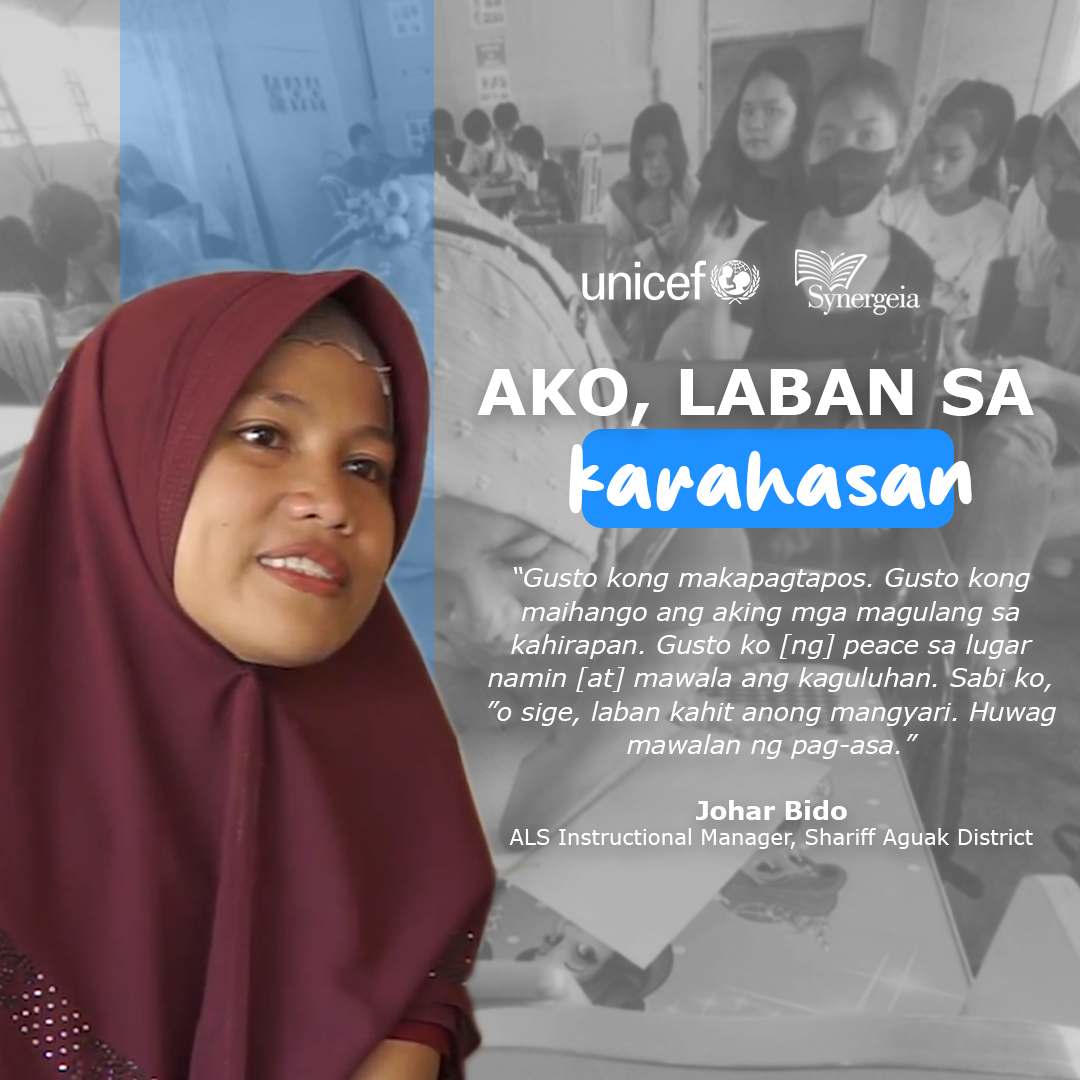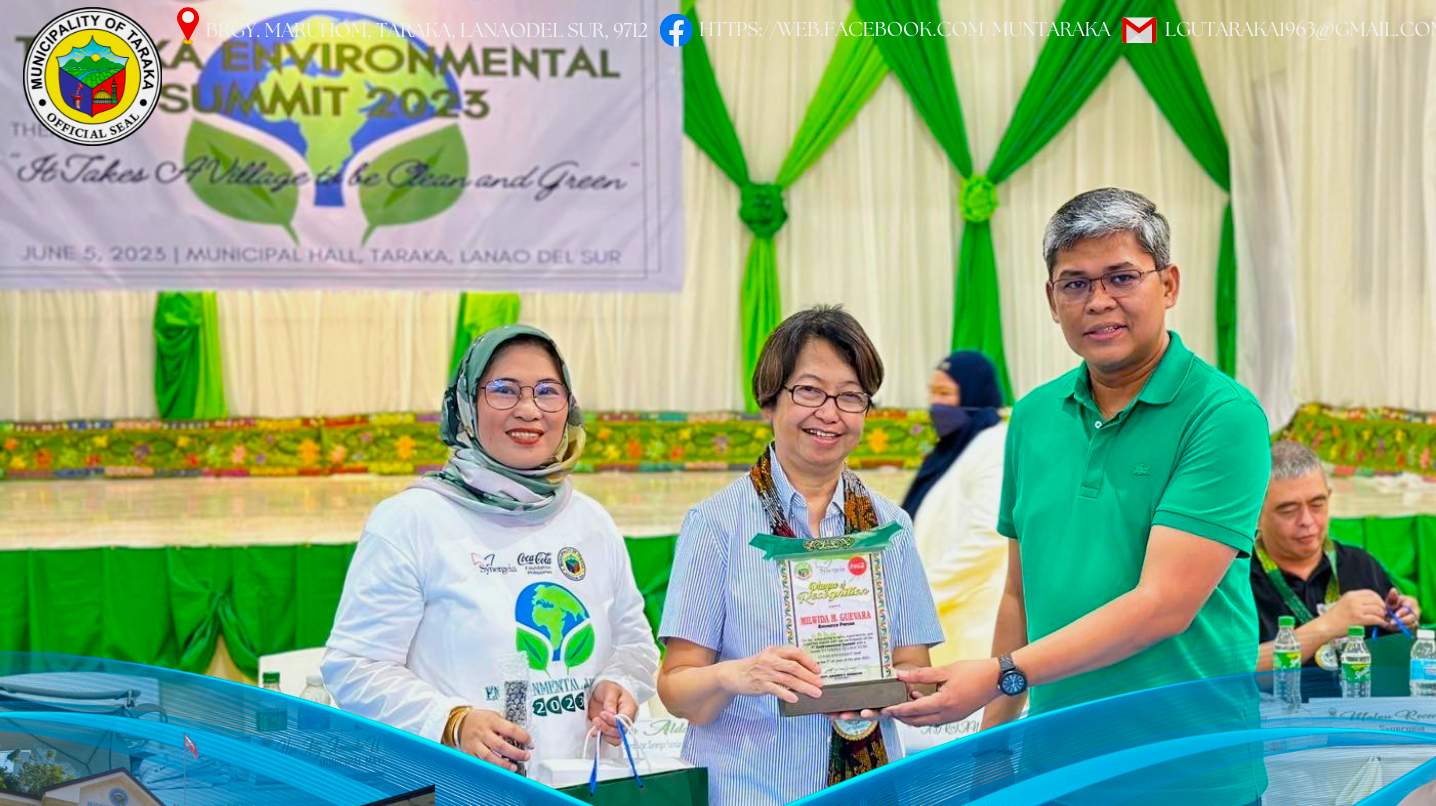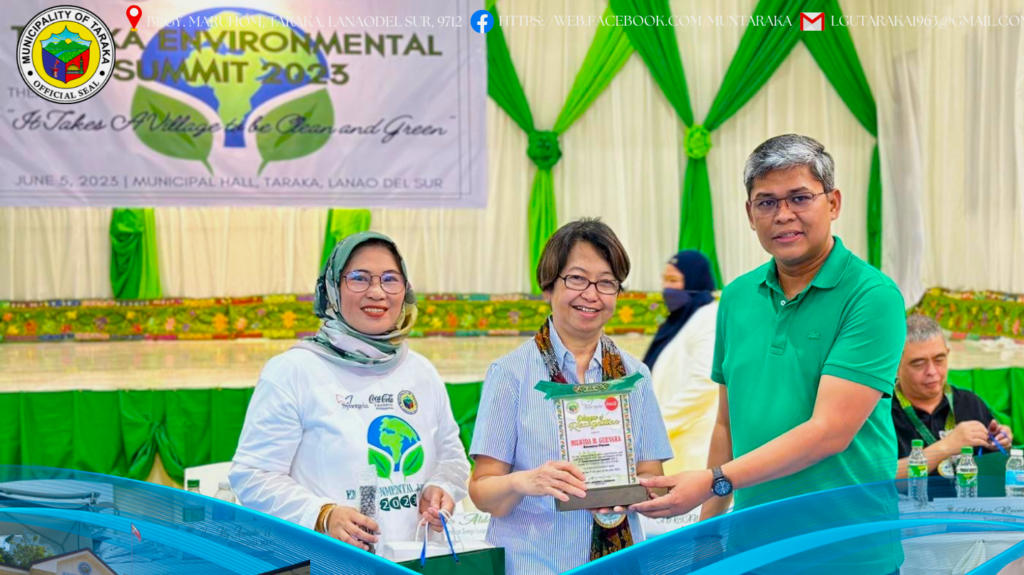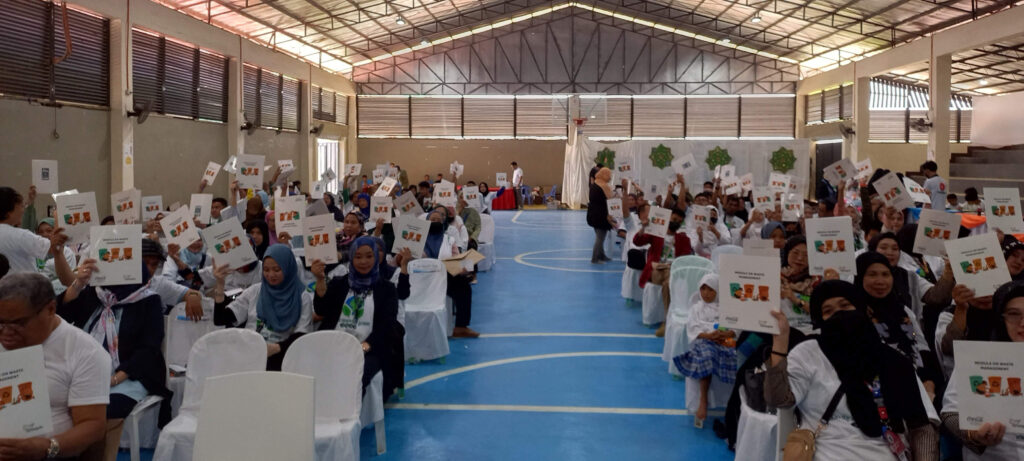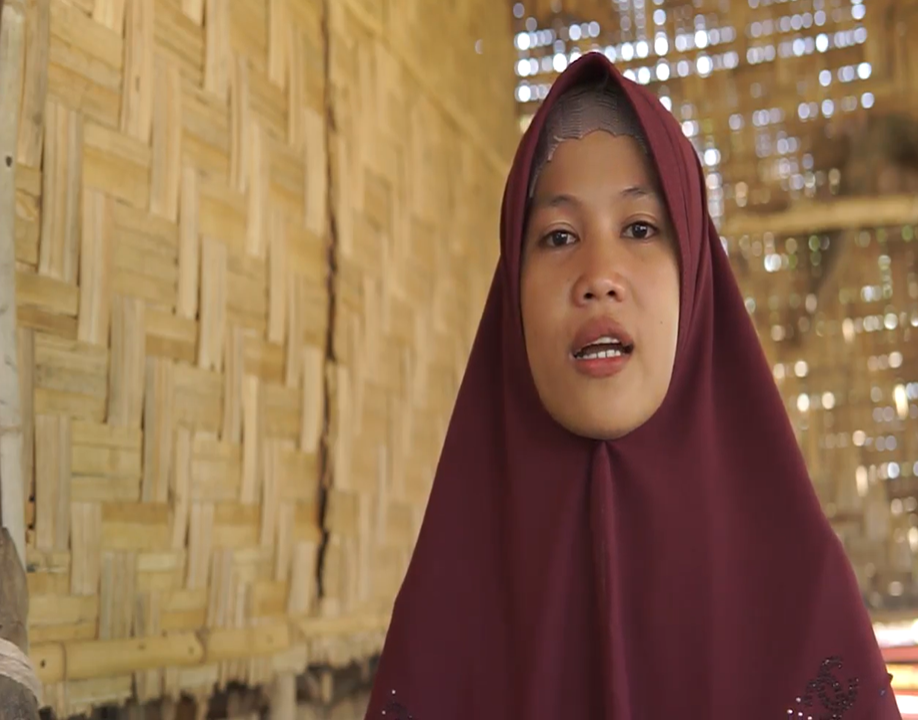
Johar Bido (ALS Instructional Manager in BARMM)
Johar Bido was a “bakwit” when she was a child. She and her family moved from one town to another to escape the war. She remembered walking for 148 kilometers from Bumbaran (now Amai Manabilang, Lanao del Sur), her mother’s hometown, to Matanog town when then President Estrada suddenly declared an all-out war against Muslim rebel forces. She called herself a certified “bakwit,” moving from Matanog, then to Libutan, Mamasapano, Kalbugan, Pikit, Badak and GSKP, and for most of the time, living in evacuation centers.
Life had been extremely difficult for Johar. But her spirit was strong and she had a dream which was to finish her studies. This became her north star which gave her the will to go on despite hers and her family’s pains and struggles.
Sometime in 2005 to 2008, she and her siblings had to stop regular school because of war. Her father also lost his job and there was no other source of income to be spent for schooling of the children. It was about this time that Johar became an ALS learner under a UNICEF-supported program. She is grateful that as a former ALS learner, she was able to finish her high school studies, took up education as her college course, and passed the Licensure Examination for Teachers (LET) in 2022.
Johar now serves her community as an ALS teacher, motivated by her desire to give back to the ALS the help that she received in the past. Johar is happy and thankful to be one of the IMs undergoing capacity building workshops with Synergeia and UNICEF. The opportunity deepens her passion to help the children and youth. “I do not want them to just go to the mountains and hold guns. I want them to continue dreaming for a good and peaceful future.” Johar hopes the local leaders would continue to strengthen the ALS because it brings a ray of hope to the out of school, their parents and the communities, especially the conflict-affected ones.
R: Ano ang pinaka-X factor ng ALS? Bakit siya pumapatok sa bata? Sa komunidad? Bakit nakakatulong sa pag-angat ng buhay?
J: Ang ALS po, gaya ng paulit-ulit naming sinasabi, ang ALS ipaparamdam sa iyo na palaging may pag-asa. Sa ALS, aasenso tayo kung itutuloy lang natin, sir, walang imposible. Lahat posible. Kung gugustuhin natin, kung papangarapin natin, kung gagawan natin ng paraan, walang imposible. Lahat posible. Maabot natin ang gusto nating abutin.
R: Ano ang mensahe mo sa kapwa.
J: Ang mensahe ko sa kanila, sir, laban lang. Walang sukuan. Kahit gaano kahirap ang pinagdadaanan, kahit gaano … Kasi, sir, ang hirap ding maging IM. As in lahat, poproblemahin mo, mai-stress ka, kaya sabi ko, payo ko sa kapwa kong IM, walang susuko. Kaya natin ito. Laban lang.
R: Ano ang mensahe mo sa mga batang nagkaroon ng karanasan sa gera?
J: Yung mensahe ko sa mga batang katulad ko na naging biktima ng gera, lahat naman kami, walang ibang hinangad kundi magkaroon ng peace sa aming lugar. So, gusto ko po iparating sa kanila na kahit gaano kagulo sa bayan natin, kahit palaging ganito ang pinagdadaan, kahit saan ka magpunta, ganito ang record natin, hindi ganoon kaganda. Sa mga bata na nawawalan ng pagasa kasi may gera, ngayon maraming bata na tumitigil magaral, naga-asawa na, naga-abroad, nawawalan ng pag-asa, nagpapariwara sa buhay. Huwag nating gawing reason ang gera para tumigil, para hindi magkaroon ng pangarap. Dapat mangarap tayo, katulad ko po na minsan ding nangarap na biktima din ng gera pero ngayon po naabot din naming ang pangarap namin.
R: Mensahe mo sa mga leaders natin.
J: Message ko sa mga leaders namin dito sana mag support… kasi may mga bata na walang enough support na galing sa mga leaders. Sana, balang araw, maibigay ang support na dapat ibigay, lalo na yung ALS, dapat lalong pagtibayin ang ALS program.
R: Naapketuhan sila ng gera katulad ko pero hindi sila dapat mag give up. Isa itong oportunidad na pwedeng gawing posible.
J: Sir, yung natutunan ko sa sitwasyon namin ay parang alam ko na ang gagawin ko, ang motivation ng sasabihin ko. So ang ginawa sir ko noon that time, ang pagtuturo ko ng ALS sumasabay sa pagre-review ko, so medyo stressful kasi pagdating mo sa bahay, bukas magtuturo ka pa. Kaya ko ba talaga ito? Gusto ko sanang tumulong sa ALS pero parang hindi ko mapapanindigan. So noong una, parang gusto ko nang sumuko kasi ang mga estudyante ko, mahirap hanapin.
May tatlo akong estudyante. Same kami, kasi bunga sila ng mga gera na hindi nakapag-aral. Sabi ko, bakit kayo nag-stop? Sabi nila, kasi ma’am gera dito, gera diyan, evacuate dito, evacuate doon. So sabi ko ano ang nagpu-push sa inyo? Bakit nyo gustong magaral sa ALS. Ma’am gusto naming makapagtapos. So, naisip ko yun ang pangarap ko dati. Gusto kong makapagtapos, gusto kong maihango ang aking mga magulang sa kahirapan, gusto ko peace sa lugar namin, mawala ang kaguluhan, so sabi ko, sir, o sige, laban, kahit ano mang mangyari, huwag mawalan ng pag-asa.
Lumapit ako kay Ma’am Lynn. Sabi ko paano ito? Kasi gusto ko din magturo, kasi yung tatlong bata, bibigyan din nila ako ng inspirasyon na huwag sumuko. Sabi ko, anong gagawin ko dito? Sabi niya, Ma’am Jo, hanapin mo lahat yan. Ikaw ang mag-approach sa kanila. Sinunod ko si ma’am. Tama siya. Kasi kung gusto mo ang isang bagay, lahat may paraan. So, ginawan ko ng paraan. Sinunod ko ang sabi ni ma’am. Nahanap ko ang mga estudyante ko, so doon, sabi ko worth it yung hirap. Gusto ko nang sumuko, pero may bagay na nag-push sa iyo para lumaban. Para sa akin, sir, yun ang kuwento doon. Yun ang motivation. Gusto kong maibalik ang tulong ng ALS. Gusto kong mai-share ang anumang knowledge na natutunan sa mga bata na mahirap mag-aral, na walang kakayanang pumuntang school dahil hirap sa area nila na laging gera. So gusto ko talagang matulungan sila, Sir, na hindi sila matulad sa mga nandiyan lang sa bundok na may dalang baril kasi ganun yun ang situation. Yun ang reality. Gusto ko bigyan natin ng derechong… yung meron silang pangarap na mapu-push natin, matutulungan nating maabot ang pangarap nila. So itong ALS talaga, malaking tulong sa mga batang hindi na makakapag-aral.
R: Masaya ka ba sa ginagawa mo? J: Yes po. Masaya po. Bukod sa nakakatulong ka, bukod sa nabibigyan din kami ng tulong ng ALS, masaya kasi yung passion mo sa pagtuturo, naa-apply sa sarili mo, na-enhance mo. Nakakakuha ka ng new experiences saka maraming kang nakukuhang bagay na natutunan na bago sa iyo, katulad ng nalalaman mo ang talagang nangyayari sa mga bata na na



